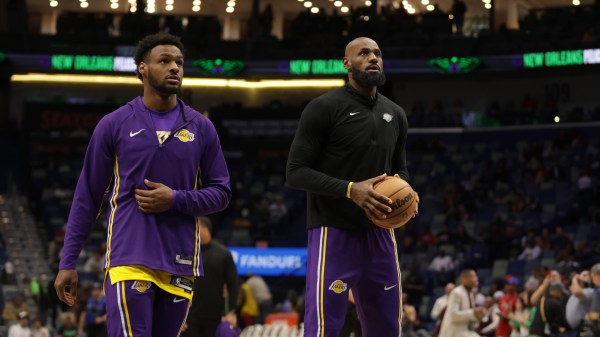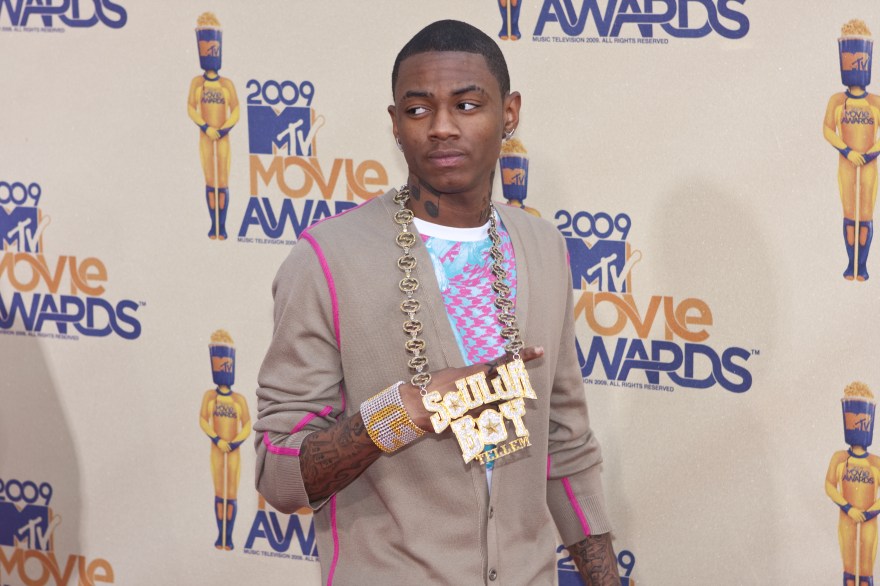Videos by According2HipHop
The internet has been shaping hip-hop culture for decades now—YouTube links, Tumblr feeds, DatPiff mixtapes.
While many rappers caught viral heat during that chaotic period, a handful of rappers managed to parlay their meme magic and blog-era hype into long-term relevance. Whether they tapped into fashion, entrepreneurship, or just kept the music consistent, these four artists put on for the early internet rap wave—and proved they weren’t just online flukes.
Soulja Boy
Before TikTok challenges and streaming hacks, there was Soulja Boy, gaming the system with “Crank That (Soulja Boy)” and teaching the world how to Superman via LimeWire and YouTube. The Mississippi native was the first rapper to fully exploit the internet as a launchpad, and while many dismissed him as a one-hit novelty, his hustle said otherwise. Over the years, Soulja has stayed in the spotlight through tech ventures (remember the SouljaGame console?), memeable moments (“Drake?!”), and his relentless confidence in having “done it first.” He remains a walking reminder that virality can be a business model—if you know how to work it.
Wiz Khalifa
Wiz Khalifa’s early mixtapes made him a blog darling, but it was Kush & Orange Juice that cemented his internet legend status. Uploaded directly to Twitter and DatPiff in 2010, the tape exploded overnight, helping redefine how mixtapes could move in a post-label world. Wiz doubled down with massive pop-rap hits like “Black and Yellow” and “See You Again,” but he never abandoned the stoner-cool aesthetic that got him there. Through Taylor Gang merch, cannabis branding, and consistent touring, Wiz built a lifestyle empire off the back of digital buzz—and never looked back.
A$AP Rocky
In the early 2010s, A$AP Rocky was *everywhere*—without ever needing a traditional radio single. His Live.Love.A$AP mixtape dropped for free online and still felt like a cultural event. Mixing Houston codeine flows with Harlem bravado and high-fashion sensibilities, Rocky became the Tumblr generation’s rap ambassador. Unlike some of his peers, he turned that early mystique into long-term cachet, landing brand deals with Dior, launching AWGE, and continuing to drop experimental, critically-acclaimed albums. Rocky didn’t just go viral—he helped shift the center of cool in hip-hop entirely.
Tyler, the Creator
Odd Future’s blog felt like a secret club, with bizarre videos, rough songs, and skate edits posted with no warning. The “Yonkers” video dropped like a nuclear bomb on early YouTube and introduced Tyler’s chaotic, genre-defying vision. Since then, he’s transformed into a Grammy-winning auteur, fashion designer, and festival founder—all while keeping that early blog-era spirit of control, creativity, and contradiction.
These artists understood the internet’s importance long before the industry did. And while algorithms, platforms, and trends have changed, their ability to adapt, brand, and evolve has kept them in the game long after the blogs died out.























